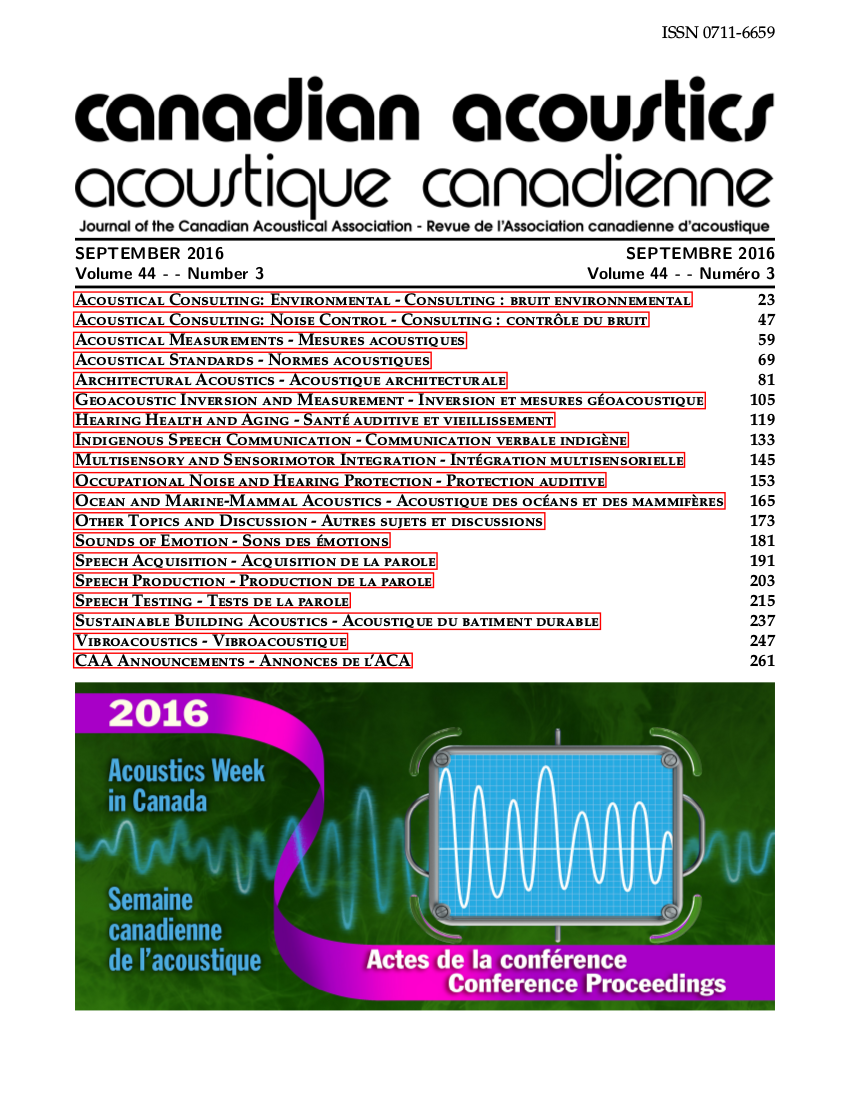Association between sensory loss and social outcomes: A preliminary report
Abstract
1 Background
Hearing and vision loss are common in the elderly and may interfere with social interaction. We aimed to determine if hearing loss, vision loss and dual sensory loss were associated with reduced social network diversity, social participation, availability of social support, and loneliness, respectively, in a population-based sample of older Canadians and whether age or sex modified the associations.
2 Methods
A cross-sectional telephone survey of 21,241 individuals was conducted. The sample was nationally representative of English- and French-speaking non-institutionalized 45-85 year old Canadians who did not live on First Nations reserves and had normal cognition. Participants with missing data for any of the variables in the multivariate regression models were excluded from analysis. Hearing and vision loss were determined by self-report. Dual sensory loss was defined as reporting both hearing and vision loss. We used multivariate regression models to analyze cross- sectional associations between each type of sensory loss and social network diversity, social participation, availability of social support, and loneliness.
3 Results
Vision loss (in men) and dual sensory loss (in 65-85 year olds) were independently associated with reduced social network diversity. Vision loss and dual sensory loss (in 65- 85 year olds) were each independently associated with reduced social participation. All forms of sensory loss were associated with both low availability of social support and loneliness.
4 Interpretation
Sensory impairment is associated with reduced social function in older Canadians. Interventions and research that address the social needs of older individuals with sensory loss are needed.
Additional Files
Published
How to Cite
Issue
Section
License
Author Licensing Addendum
This Licensing Addendum ("Addendum") is entered into between the undersigned Author(s) and Canadian Acoustics journal published by the Canadian Acoustical Association (hereinafter referred to as the "Publisher"). The Author(s) and the Publisher agree as follows:
-
Retained Rights: The Author(s) retain(s) the following rights:
- The right to reproduce, distribute, and publicly display the Work on the Author's personal website or the website of the Author's institution.
- The right to use the Work in the Author's teaching activities and presentations.
- The right to include the Work in a compilation for the Author's personal use, not for sale.
-
Grant of License: The Author(s) grant(s) to the Publisher a worldwide exclusive license to publish, reproduce, distribute, and display the Work in Canadian Acoustics and any other formats and media deemed appropriate by the Publisher.
-
Attribution: The Publisher agrees to include proper attribution to the Author(s) in all publications and reproductions of the Work.
-
No Conflict: This Addendum is intended to be in harmony with, and not in conflict with, the terms and conditions of the original agreement entered into between the Author(s) and the Publisher.
-
Copyright Clause: Copyright on articles is held by the Author(s). The corresponding Author has the right to grant on behalf of all Authors and does grant on behalf of all Authors, a worldwide exclusive license to the Publisher and its licensees in perpetuity, in all forms, formats, and media (whether known now or created in the future), including but not limited to the rights to publish, reproduce, distribute, display, store, translate, create adaptations, reprints, include within collections, and create summaries, extracts, and/or abstracts of the Contribution.


